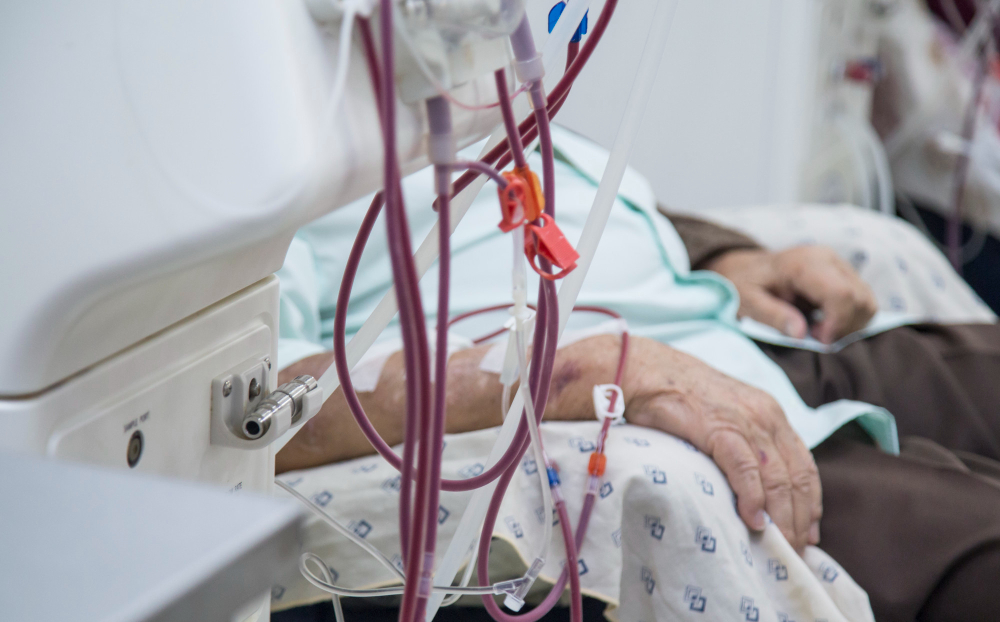Understanding the Difference Between Hemodialysis and Peritoneal Dialysis
2025-02-19 / RG STONE HOSPITAL / Nephrology

Millions of people worldwide experience kidney failure as a severe medical condition which demands dialysis for survival. The body requires dialysis treatment because kidney failure disables their natural ability to remove waste materials and excess fluids from blood circulation. The dialysis treatment method exists in two essential kinds which are both known as hemodialysis and peritoneal dialysis. The purposes of these dialysis types are equivalent but their operational mechanics and physical locations and their effects on patient daily life remain inconsistent.
RG Hospital realizes how important it is to choose correct dialysis treatment for patients. This blog contains detailed information about the differences between hemodialysis and peritoneal dialysis to enable patient families to choose proper kidney health solutions.
What is Hemodialysis?
Hemodialysis is a process that removes waste, toxins, and excess fluids from the blood using a dialysis machine. The dialysis machine connects patients to filter their blood through special dialyzers between performing clean blood returns to their body. Hemodialysis procedures take place three times per week and require three to five-hour sessions for each session. Medical staff conduct hemodialysis procedures at hospital settings and dialysis facilities under their constant professional supervision.
What is Peritoneal Dialysis?
Unlike hemodialysis, peritoneal dialysis does not require a machine to filter the blood. People who undergo peritoneal dialysis no longer need machine filtration of their blood unlike patients who get hemodialysis. The body's peritoneal layer functions as its natural filtration medium because it lines the interior of the abdomen. A soft tube named catheter receives insertion into the patient's abdomen during this process. A specific dialysis fluid is placed in the abdominal cavity to draw waste and excess fluids while in the space. The medical treatment requires exchanging the spent dialysis fluid with new clean fluid during the process.
Peritoneal dialysis consist of two fundamental types:
-
Via CAPD the patient handles the renal dialysis procedure through manual procedures of fluid exchange at various periods throughout daily operations.
-
The automated Peritoneal Dialysis (APD) machine executes fluid transference at night when patients rest.
Key differences between hemodialysis and peritoneal dialysis:
The major distinction between these two dialysis methods exists in the treatment environment. The difference between these renal treatments involves at-home delivery as peritoneal dialysis stands opposite to hospital-dialysis facilities where hemodialysis takes place. Patients with preferences for a flexible treatment schedule should opt for peritoneal dialysis because of its home-based solution.
The blood filtering mechanism operates through substantially different methods between these procedures. The blood filtration process through machines outside the body takes place in hemodialysis while peritoneal dialysis uses the peritoneal membrane inside the body as its filtering system. Patients receive hemodialysis through several weekly sessions but each session requires extensive time whereas patients perform peritoneal dialysis daily without major limitations to their regular routines.
Which Dialysis method is good for you?
The selection of dialysis method between hemodialysis and peritoneal dialysis depends on various criteria that encompass:
Some patients experience medical issues that make them unable to handle the quick fluid drainage associated with hemodialysis treatment. The presence of abdominal surgeries creates difficulties for patients who consider peritoneal dialysis.
People who need a hospital-supervised structured treatment system will choose hemodialysis while peritoneal dialysis gives individuals independence with treatment options.
Our experienced nephrologists at RG Hospital evaluate every patient's health status and lifestyle together with their medical history before they choose the right dialysis treatment. Our dialysis facilities contain all modern equipment and we provide custom treatment to patients for achieving their optimal medical results.
Conclusion
Hemodialysis and peritoneal dialysis represent two effective kidney failure treatments which differ because of their operational methods in addition to their placement requirements and patient life disruption effects. Hemodialysis takes place in hospital facilities while peritoneal dialysis enables patients to perform treatment from home through their peritoneal membrane. A suitable treatment method depends on somebody's medical situation as well as their way of life along with their competence in handling the therapy.
RG Hospital dedicates itself to deliver premium kidney treatment services to our patients. Our specialists will walk through dialysis decisions with you and give the ideal treatment after you or someone close to you requires kidney disease dialysis.
Categories
Hernia Repair
Appendicitis
Piles
Urological Treatment
Hernia treatment
Enlarged Prostate (BPH)
Gall Bladder Stone
Urinary / Kidney Stone
Vitamins
Indian Health Care System
Exercise
Obesity
Female Urinary Incontinence
Single Incision Laparoscopic Surgery (SILS)
Kidney Cancer
Bladder Cancer
Ovarian cancer
Nephrology
Bariatric Surgery
Kidney Function Test
Female Urology
Radiation Therapy

